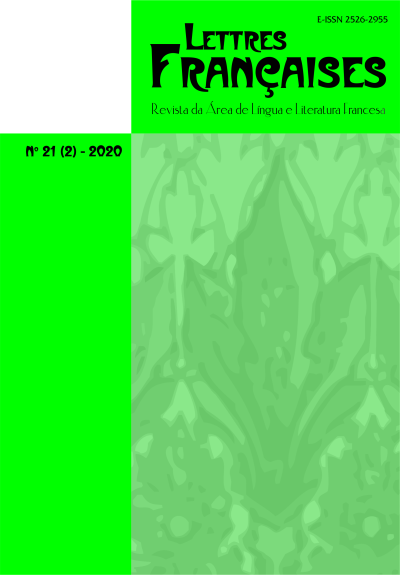Carnivalization as a mark of repression in Émile Zola’s Naná
Keywords:
Nana, Zola, Lukács, Carnivalization, NaturalismAbstract
This article aims to analyze the novel Nana as a production subsequent to the 1848 horrors in France. Therefore, it is necessary to understand the concepts of trauma and repression, both part of the psychoanalysis universe. Although the notion of repression and its mechanisms were not yet known in 1848, this is what we sometimes witness in an explicit and often implicit way in the French literature of the period. We believe that these aspects can still be found in artists who created their works later, such as Émile Zola. To conduct the analysis, we concentrate on four passages of this novel in an attempt to elucidate some aspects of the naturalistic composition and ascertain to what extent this work is also the result, although at a later time, of that repression, where carnivalization is used to mask the forbidden.
Downloads
Published
Issue
Section
License
Os manuscritos aceitos e publicados são de propriedade da Revista Lettres Françaises. É vedada a submissão integral ou parcial do manuscrito a qualquer outro periódico. A responsabilidade do conteúdo dos artigos é exclusiva dos autores. É vedada a tradução para outro idioma sem a autorização escrita do Editor ouvida a Comissão Editorial.

